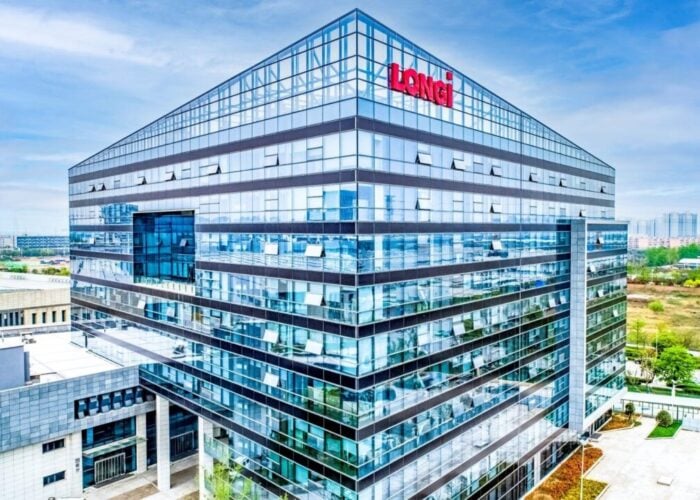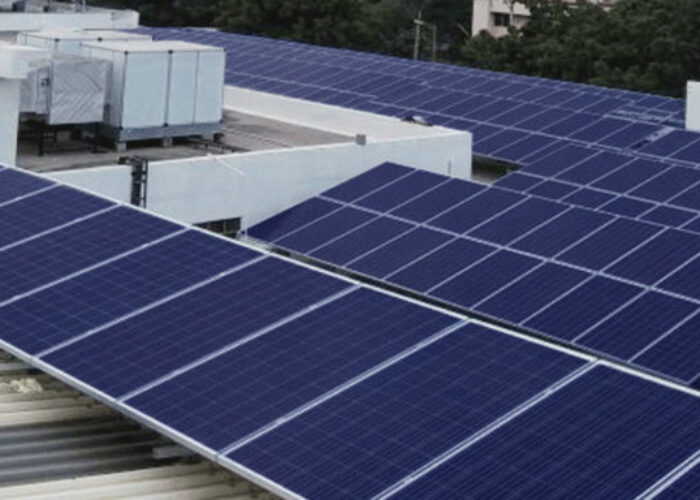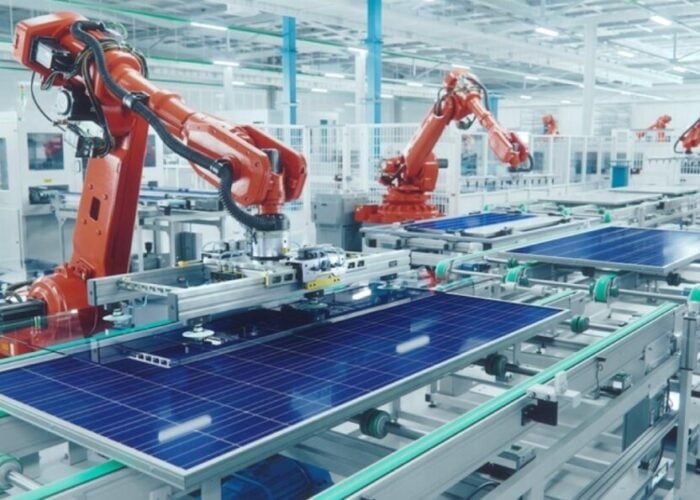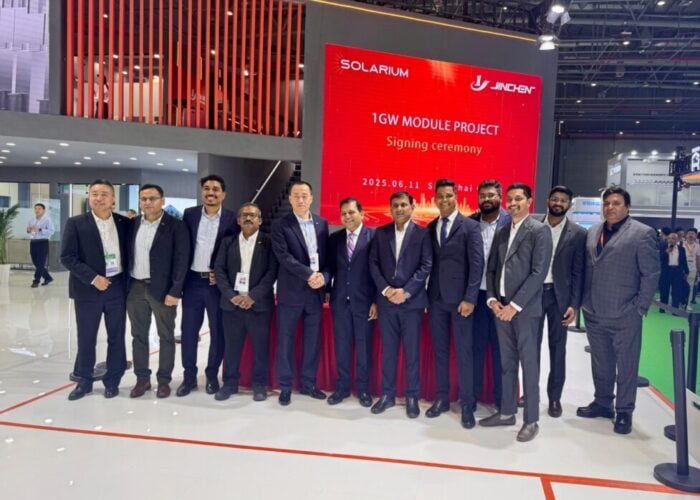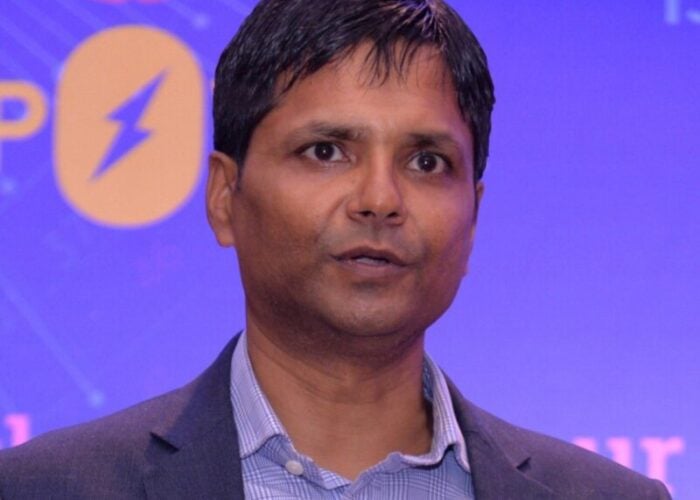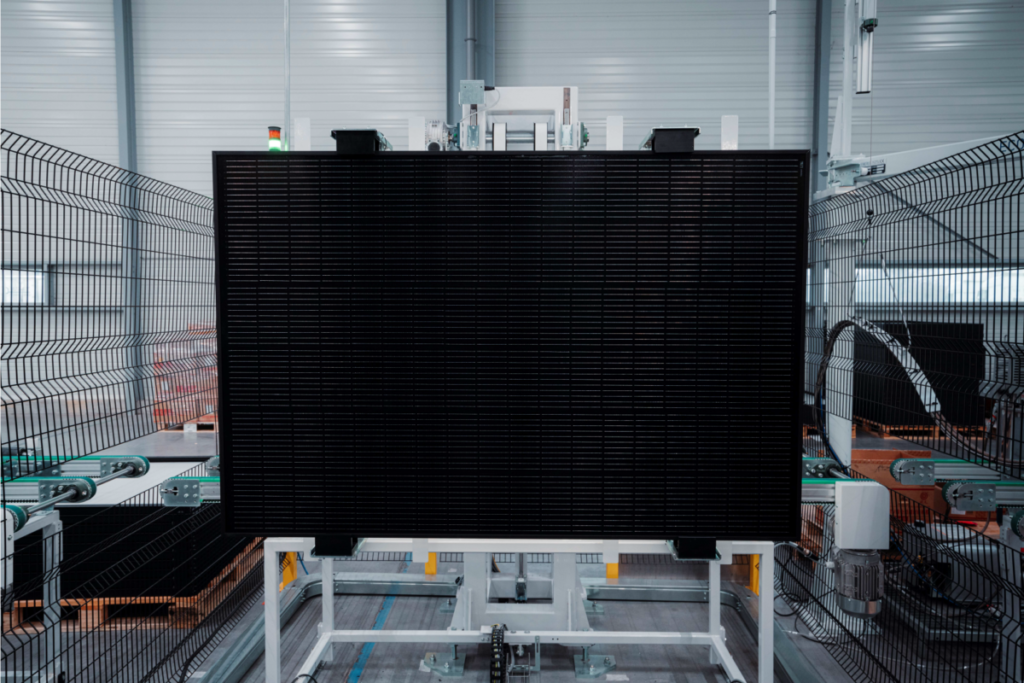
The European Solar Manufacturing Council (ESMC) has again published an open letter regarding the solar manufacturing industry in the EU, urging European legislators to adopt legislation that prohibits the sale of products made with forced labour particularly in Xinjiang, China, in addition to recommendations for its members to address forced labour in supply chain.
The ESMC said that modules in Xinjiang are prevented from entering the US market thanks to the US Uyghur Forced Labor Prevention Act (UFLPA).
Unlock unlimited access for 12 whole months of distinctive global analysis
Photovoltaics International is now included.
- Regular insight and analysis of the industry’s biggest developments
- In-depth interviews with the industry’s leading figures
- Unlimited digital access to the PV Tech Power journal catalogue
- Unlimited digital access to the Photovoltaics International journal catalogue
- Access to more than 1,000 technical papers
- Discounts on Solar Media’s portfolio of events, in-person and virtual
Under this law, all goods produced in Xinjiang, entirely or partially, are assumed to be the result of forced labour and are thus prohibited from entering the US market unless proven otherwise.
However, the act has led to more than 5,000 shipments being detained at US ports, many of which are related to the solar PV industry. Therefore, Chinese solar module manufacturers diverted their surplus to the EU market. Currently, there is an excess of 40GW of PV modules made in China on the European market, equivalent to the entire 2022 installation volume in Europe.
The ESMC said this situation further depresses solar module prices and undermines more sustainable European solar module production.
In response to the influx of solar modules produced in China and the subsequent falling solar module prices, the ESMC urged the EU to collaborate with the US and make use of the US Uyghur Forced Labor Prevention Act Entity List and the US Department of Labor’s Register of Products Manufactured with Child or Forced Labor to stop all Xinjiang-made solar materials, including polysilicon, wafers, cells, and modules.
The ESMC also recommended the use of the Foreign Subsidies Regulation to tackle foreign subsidies that distort and undermine the “level playing field in the material market”, and to impose trade defence measures against China.
Apart from restricting the import of Chinese solar modules, the ESMC also said the EU procurement scheme should be activated to buy European solar modules, and include 40% market share capacities solar modules produced in the EU into the Net Zero Industry Act.
The ESMC also listed several recommendations to its members to address links to forced labour in the supply chain. First, solar businesses should not source any product or material at all from Xinjiang. They should also be vigilant on bifurcation which enables suppliers to continue sourcing from Xinjiang. Re-routed supplies of material could be a sign that suppliers are still dependent on forced labour.
Moreover, solar companies can also introduce unique QR codes or a manufacturing execution system to create a comprehensive digital history. They can also audit their suppliers regularly with a focus on potential high-risk suppliers, forced labour and other environmental, social, and corporate governance (ESG) aspects.
Additionally, solar businesses can offer training to their staff to identify forced labour, especially with a focus on governance documents and current legislation.
The ESMC also urged the EU to take action to safeguard the European PV manufacturing industry threatened by “unsustainably low-priced PV modules” from Chinese module manufacturers before. In the open letter, the signatories said the prices of PV modules had dropped by over 35% to €0.15 (US$0.16) per watt. However, these companies had a “limited chance for selling the production in such circumstances”.


